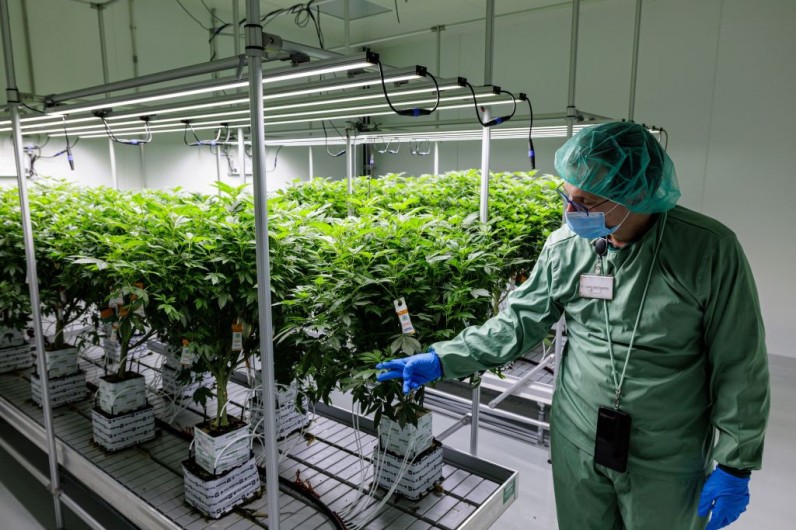The United Kingdom has strided for agricultural innovation after Gloucestershire became home to one of its most sophisticated indoor farms. The newly established vertical farm boasts capabilities that outpace traditional outdoor agriculture, enabling the rapid growth of salad crops thanks to its meticulously controlled climate.

According to BBC, lettuce, basil, and assorted herbs flourish in this vertical farming facility under specialized lighting and within a warm, humid environment. Head grower Glyn Stephens, a seasoned farmer, expresses his amazement at the transformation of farming into a high-tech endeavor. He notes the substantial technological and engineering aspects involved in this modern approach to cultivation.
UK's Indoor Farming Crops
The UK indoor farms resemble a warehouse more than a traditional farm, and it accommodates rows upon rows of trays brimming with basil, lettuce, and salad leaves illuminated by vibrant, multi-colored lights. Stacked fifteen layers high, the vertical setup maximizes space, totaling an impressive 14,500 square meters of growing area.
Maintaining a consistent temperature of 27 degrees Celsius and 75% humidity, the farm provides an ideal environment for plant growth.
Basil, for instance, matures from seed to harvest in a remarkable 18 days, nearly three times faster than conventional outdoor cultivation. This is particularly advantageous during winter, when British supermarkets rely heavily on imports from warmer climates.
Versus Traditional Farming
Despite its heavy energy consumption, primarily attributed to LED lighting and various climate control systems, indoor farming operates entirely on renewable electricity.
This sustainable approach aligns with efforts to reduce carbon emissions associated with transporting crops across continents.
While some vertical farms have faced financial challenges due to high electricity costs, the Gloucestershire farm aims to mitigate such concerns through efficient climate control measures.
James Lloyd-Jones, founder and CEO of Jones Food Company, the entity behind the venture, expresses confidence in the farm's commercial viability, emphasizing its ability to produce sustainable food year-round.







Join the Conversation